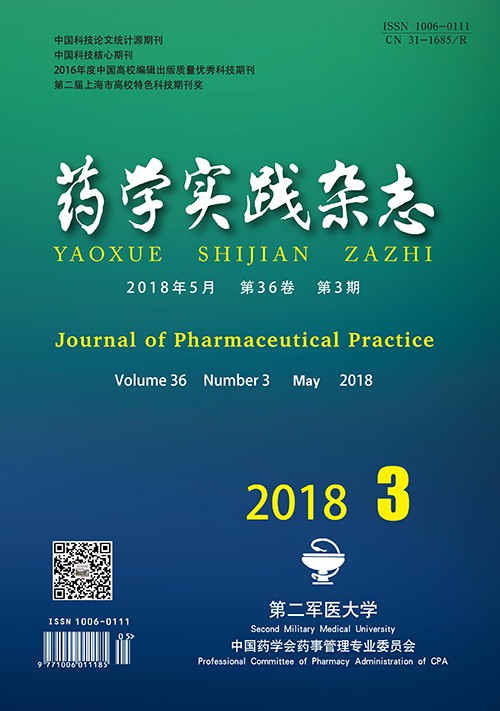|
[1]
|
Sayers J. The world health report 2001-Mental health:new understanding,new hope[J]. Bullet World Health Organ,2001,79(11):1085. |
|
[2]
|
Zhang X, Tian JS, Liu H, et al. Progress of new antidepressant drugs development[J]. Chin J Chin Mater Medic, 2017, 42(1):29-33. |
|
[3]
|
王旭东, 乔明琦, 张樟进,等. 中医药治疗抑郁症的研究进展[J]. 南京中医药大学学报, 2016, 32(1):93-96. |
|
[4]
|
Adam Samuels B, Leonardo ED, Hen R. Hippocampal subfields and major depressive disorder[J]. Biol Psychiatry, 2015, 77(3):210-211. |
|
[5]
|
Schoenfeld TJ, Mccausland HC, Morris HD, et al. Stress and loss of adult nurogenesis differentially reduce hippocampal volume[J]. Bioll Psychiatry, 2017,82(12):914-923. |
|
[6]
|
Hill AS, Sahay A, Hen R. Increasing adult hippocampal neurogenesis is sufficient to reduce anxiety and depression-like behaviors[J]. Neuropsychopharmacology, 2015, 40(10):2368-2378. |
|
[7]
|
Bremner JD, Narayan M, Anderson ER, et al. Hippocampal volume reduction in major depression[J]. Am J Psychiatry, 2000, 157(1):115-118. |
|
[8]
|
Moraitis AG, Block T, Nguyen D, et al. The role of glucocorticoid receptors in metabolic syndrome and psychiatric illness[J]. J Steroid Biochem Mol Biol, 2017, 165:114-120. |
|
[9]
|
张国双, 杨坤. 抗抑郁新靶点-糖皮质激素受体[J]. 国际精神病学杂志, 2015,42(1):84-86. |
|
[10]
|
Kinlein SA, Wilson CD, Karatsoreos IN. Dysregulated hypothalamic-pituitary-adrenal axis function contributes to altered endocrine and neurobehavioral responses to acute stress[J]. Front Psychiatry, 2015, 6:31. |
|
[11]
|
Ferrari F, Villa RF. The neurobiology of depression:an integrated overview from biological theories to clinical evidence[J]. Mol Neurobiol,2017,54(7):4847-4865. |
|
[12]
|
乔卉, 安书成, 徐畅. BDNF与抑郁症的研究现状及进展[J]. 生理科学进展, 2011, 42(3):195-200. |
|
[13]
|
Rantamaki T, Yalcin I. Antidepressant drug action-from rapid changes on network function to network rewiring[J]. Prog Neuropsychopharmacol Biol Psychiatry, 2016, 64:285-292. |
|
[14]
|
Schmitt K, Holsboer-Trachsler E, Eckert A. BDNF in sleep, insomnia, and sleep deprivation[J]. Ann Med, 2016, 48(1-2):42-51. |
|
[15]
|
Hauser SR, Getachew B, Taylor RE, et al. Alcohol induced depressive-like behavior is associated with a reduction in hippocampal BDNF[J]. Pharmacol Biochem Behav, 2011, 100(2):253-258. |
|
[16]
|
Zhuang F, Zhou X, Gao X, et al. Cytokines and glucocorticoid receptors are associated with the antidepressant-like effect of alarin[J]. Peptides, 2016, 76:115-129. |
|
[17]
|
Felger JC, Lotrich FE. Inflammatory cytokines in depression:neurobiological mechanisms and therapeutic implications[J]. Neuroscience, 2013, 246(5):199-229. |
|
[18]
|
Su WJ, Cao ZY, Jiang CL. Inflammatory mechanism of depression and its new strategy for diagnosis and treatment[J].Sheng Li Xue Bao,2017,69(5):715-722. |
|
[19]
|
汪崇泽, 盛国红. 免疫炎症途径与抑郁症的研究进展[J]. 精神医学杂志, 2015,28(5):397-400. |
|
[20]
|
Zhu X, Han Y, Du J, et al. Microbiota-gut-brain axis and the central nervous system[J]. Oncotarget, 2017, 8(32):53829-53838. |
|
[21]
|
于林, 胡号应, 丁国安,等. 肠道微生物在抑郁症发病中的作用及其研究进展[C].2016中华中医药学会神志病分会学术年会,2016. |
|
[22]
|
Zheng P, Zeng B, Zhou C, et al. Gut microbiome remodeling induces depressive-like behaviors through a pathway mediated by the host's metabolism[J]. Mol Psychiatry, 2016, 21(6):786-796. |
|
[23]
|
Zhang QX,Ma XL,Yang Y, et al. Jieyuanshen decoction exerts antidepressant effects on depressive rat model via regulating hpa axis and the level of amino acids neurotransmitter[J]. Afric J Tradit,Complement Altern Med,2017, 14(2):33-46. |
|
[24]
|
刘婉婉, 许璐, 董宪喆,等. 开心散类方对慢性应激大鼠行为学及中枢单胺类神经递质的影响[J]. 中国中药杂志, 2015, 40(11):2180-2185. |
|
[25]
|
Dong XZ, Li ZL, Zheng XL, et al. A representative prescription for emotional disease, Ding-Zhi-Xiao-Wan restores 5-HT system deficit through interfering the synthesis and transshipment in chronic mild stress-induced depressive rats[J]. J Ethnopharmacol, 2013, 150(3):1053-1061. |
|
[26]
|
Gong MJ, Han B, Wang SM, et al. Icariin reverses corticosterone-induced depression-like behavior, decrease in hippocampal brain-derived neurotrophic factor (BDNF) and metabolic network disturbances revealed by NMR-based metabonomics in rats[J]. J Pharm Biomed Anal, 2016, 123:63-73. |
|
[27]
|
Ye YL,Zhong K, Liu DD, et al. Huanglian-Jie-Du-Tang extract ameliorates depression-like behaviors through BDNF-TrkB-CREB pathway in rats with chronic unpredictable stress[J]. Evidence-Based Complement Altern Med,2017(4):1-13. |
|
[28]
|
Chen CY, Yeh YW, Kuo SC, et al. Differences in immunomodulatory properties between venlafaxine and paroxetine in patients with major depressive disorder[J]. Psychoneuroendocrinology, 2017, 87:108-118. |
|
[29]
|
An L, Li J,Yu ST, et al. Effects of the total flavonoid extract of Xiao bu xin-Tang on depression-like behavior induced by lipopolysaccharide and proinflammatory cytokine levels in mice[J]. J Ethnopharmacol, 2015, 163:83-87. |
|
[30]
|
Qiu JJ, Liu Z, Zhao P, et al. Gut microbial diversity analysis using Illumina sequencing for functional dyspepsia with liver depression-spleen deficiency syndrome and the interventional Xiaoyaosan in a rat model[J]. World J Gastroenterol, 2017, 23(5):810-816. |







 DownLoad:
DownLoad: